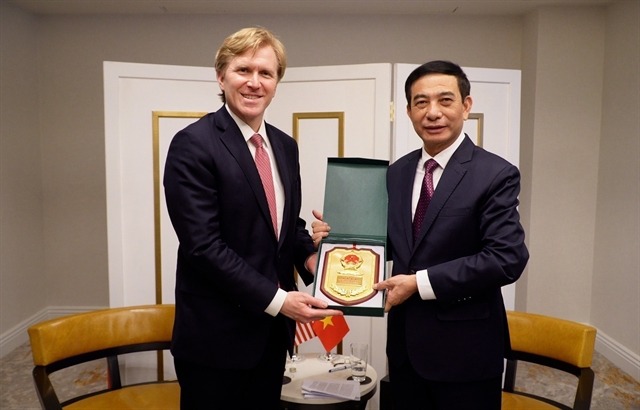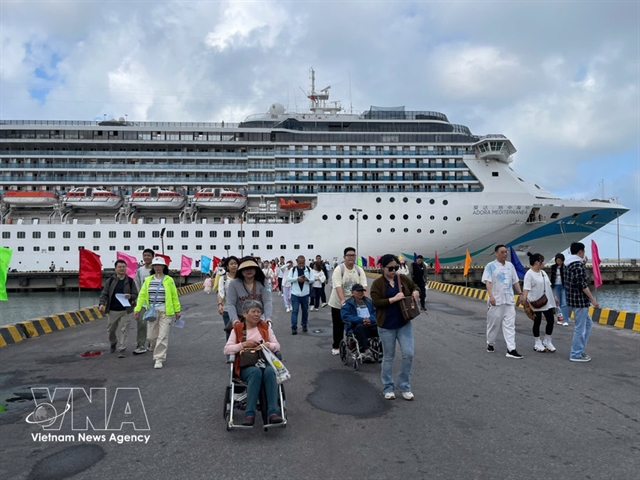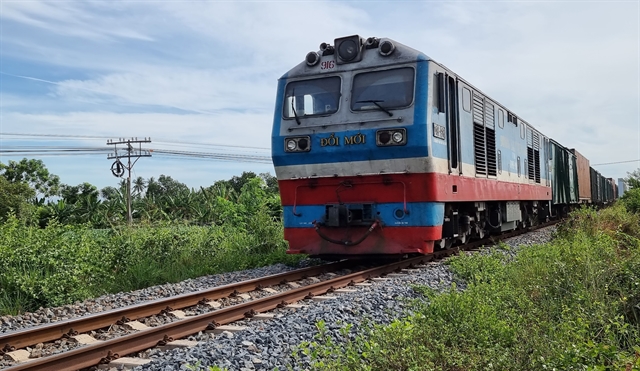 Economy
Economy
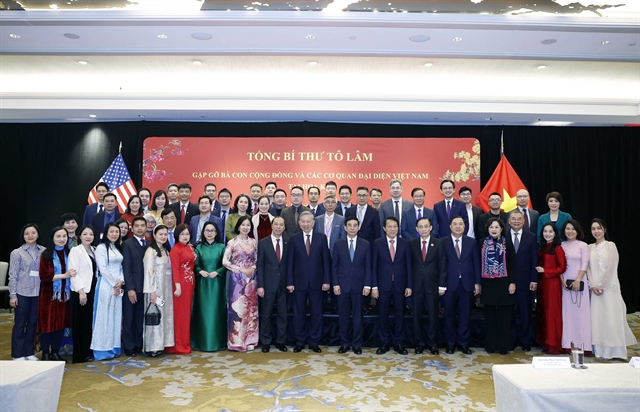
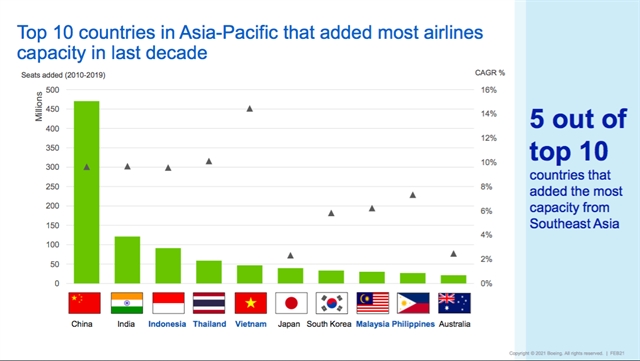
|
| One slide from Boeing’s 2020 Commercial Market Outlook (CMO) ranks Việt Nam in the top 5 countries which add the most airlines capacity between 2010-19. |
HÀ NỘI — Southeast Asia will need 4,400 new airplanes valued at US$700 billion to support expanding demand for air travel over the next 20 years, said Darren Hulst, Boeing vice president of Commercial Marketing.
In an online conference yesterday, Hulst quoted Boeing’s 2020 Commercial Market Outlook (CMO), saying: “The intra-Southeast Asian market will become the fifth largest in the world by 2039, and the vast domestic and regional air-travel network across the region positions it well for a post-pandemic recovery.”
With low-cost carriers providing affordable service and added capacity, CMO estimated traffic growth in Southeast Asia to grow by 5.7 per cent annually in the next 20 years, making the region the second largest aviation market in the Asia-Pacific region after China.
Boeing, at the same time, projected the region’s commercial airplane fleet to grow 5.3 per cent annually during the period while the demand for aftermarket commercial services could reach US$790 billion.
Hulst said: “Southeast Asia’s fundamental growth drivers remain robust. With an expanding middle-class and growth in private consumption, the region’s economy has grown by nearly 70 per cent over the last decade, which increases propensity to travel,” adding: “Governments in the region continue to recognise the travel and tourism sectors as important drivers of economic growth.”
Boeing’s vice president said: “Indonesia, Thailand, Việt Nam, Malaysia and the Philippines are the markets that most contribute to the growth in the global aviation market. They are also places with more room for expansion because of the emerging middle class, which could be 60 million new passengers in the next 15 years.”
Hulst also considered Việt Nam as the fastest growing market in terms of growth of air travel in the region with the advantage of a strong domestic market and the recent control of the pandemic.
Mentioning the demand for airplanes in the region, he said though the near-term airplane deliveries were impacted as a result of the pandemic, Boeing estimated operators would need more than 3,500 new single-aisle airplanes in the region by 2039 as the low-cost-carriers have the highest market penetration globally.
The airplane maker said twin-aisle airplanes such as the 777X and 787 Dreamliner still remain foundational to Southeast Asia’s air travel industry, adding one in four twin-aisle airplanes delivered to the broader Asia-Pacific region would go to a carrier operating in Southeast Asia. It forecast the region would need 760 new widebodies by 2039.
As the region’s commercial aviation services growth remained promising in the long term, said the CMO, Southeast Asia commercial services were valued at $790 billion over the next 20 years, a slight increase from last year’s projection, driven largely by growth in freighter conversions and digital solutions and analytics. With such estimation, Southeast Asia expected to require 183,000 more commercial pilots, cabin crew members and aviation technicians.
Globally, Boeing forecast the demand for 43,110 new commercial airplanes and the demand for aftermarket services to be equivalent to US$9 trillion over the next two decades when world air cargo traffic was projected to grow 4 per cent annually due to solid industrial production and world trade. The CMO said freighters would remain the backbone of the cargo industry with the need for 930 new and 1,500 converted freighters during the same span. — VNS

